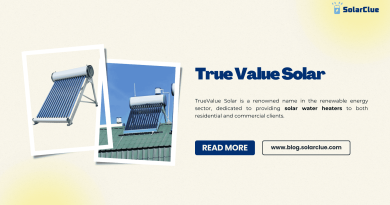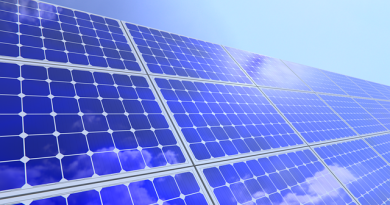How can a Solar Power System Benefit your New Home?
In recent years, solar power has gained widespread popularity as homeowners seek sustainable and cost-effective ways to power their homes. Solar energy systems allow homeowners to harness the sun’s natural energy to produce electricity, significantly reducing utility costs. Additionally, installing a solar power system can increase a home’s value, making it more attractive to eco-conscious buyers. With costs for solar technology continuing to decrease, solar energy has become accessible and beneficial for new homes, transforming how households approach energy use.
Table of Contents
Why Choose Solar Power for Your New Home?
Choosing to install solar power during the construction phase offers several advantages, including easier integration and potential cost savings. Solar-ready packages and renewable energy mortgages allow new homeowners to incorporate solar energy without the need for later retrofitting, which can be expensive and time-consuming. New homeowners who prioritize green energy solutions can enjoy energy savings from day one, reducing the environmental impact and supporting a more sustainable lifestyle.
How a Solar Power System Works?
A solar power system operates using photovoltaic (PV) panels that absorb sunlight and convert it into electricity. Here’s a step-by-step overview of the process:
1. Sunlight Absorption: Solar panels, typically mounted on the roof, capture sunlight through PV cells. The energy from sunlight excites electrons in the PV cells, creating direct current (DC) electricity.
2. Conversion to Usable Power: An inverter within the system converts DC electricity into alternating current (AC), the standard form of electricity used in homes.
3. Power Distribution: The AC power is used throughout the home, powering appliances, lights, and electronics.
4. Excess Energy Management: Any surplus electricity can be fed back to the grid or stored in a solar battery for later use. Net metering allows homeowners to earn credits from the utility company for any excess energy they generate.
Benefits of Solar Power for Homeowners
1. Cost Savings
Installing a solar power system can lead to substantial energy cost reductions, especially in regions with high electricity rates. The initial investment in solar panels can pay off within 7-10 years through energy savings. After this payback period, the power generated is essentially free, providing savings for 20-25 years or longer.
2. Energy Independence
Solar power offers homeowners a level of energy autonomy, reducing reliance on the grid and shielding them from fluctuations in electricity prices. Homeowners can also install solar batteries to store energy, ensuring access to power even during outages.
3. Environmental Impact
Switching to solar significantly reduces a household’s carbon footprint, as solar energy is renewable and produces no harmful emissions. This reduction in greenhouse gases helps combat climate change and contributes to cleaner air, making it an excellent choice for eco-conscious homeowners.
Solar System Types and Costs
Home solar systems come in various configurations, tailored to different needs and levels of energy independence. Here’s a comparison of the main types:
|
Solar System Type |
Description |
Pros |
Cons |
Ideal For |
|---|---|---|---|---|
|
Grid-Tied |
Connected to the power grid |
Lower cost, eligible for net metering |
No power during outages without a battery |
Areas with reliable grid access |
|
Off-Grid |
Fully independent of the grid |
Complete energy independence |
Higher cost, requires larger battery storage |
Remote locations |
|
Hybrid |
Combination of grid and battery |
Backup power for outages, reduces grid reliance |
Higher initial cost due to battery |
Areas with frequent power outages |
The cost of a solar system depends on factors like panel type (e.g., monocrystalline, polycrystalline, thin-film), system size, and installation complexity. On average, a residential solar system can cost between ₹3,00,000 and ₹5,00,000 before incentives. Financing options, such as solar loans, leases, and power purchase agreements (PPAs), make solar more affordable.
Financial Benefits of Solar Power
Solar energy provides financial benefits through energy savings and increased home value. Here’s a closer look:
1. Return on Investment (ROI): Many homeowners see a full return on their investment within 7-10 years. After the payback period, all savings on energy bills contribute directly to household finances.
2. Incentives and Tax Credits: Government incentives, like the federal Investment Tax Credit (ITC), allow homeowners to deduct a portion of their solar installation costs, reducing upfront expenses. Additionally, many states offer rebates and incentives that can significantly lower installation costs.
3. Increased Property Value: Homes with solar power systems generally have a higher resale value and are more appealing to environmentally conscious buyers.
How Solar Power Contributes to a Sustainable Future
Adopting solar energy supports a sustainable future by reducing reliance on fossil fuels. Solar power produces no emissions, which means cleaner air and a smaller carbon footprint. By contributing to a more sustainable energy mix, each solar-powered home plays a role in mitigating climate change and promoting energy independence on a larger scale.
Choosing the Right Solar System Size for Your Home
To maximize the benefits of solar, it’s essential to choose a system size that matches your energy needs. Factors to consider include:
1. Energy Consumption: Evaluate your average monthly energy use to determine the necessary system capacity.
2. Roof Space and Orientation: Roof size and positioning impact how much sunlight the panels receive. South-facing roofs with minimal shading are ideal.
3. Climate: Regions with ample sunlight may require fewer panels, while areas with less sunlight may need larger systems.
An energy audit by a professional can help homeowners make informed decisions about the system size, avoiding overspending while meeting energy needs.
The Role of Solar Inverters and Batteries
Solar inverters and batteries play a vital role in a solar power system:
Solar Inverters: Inverters convert DC electricity from the panels into AC electricity used by household appliances. Advanced inverters, like smart inverters, provide better energy management and offer options for monitoring energy production.
Solar Batteries: Batteries store excess energy for use during non-sunny periods or power outages. This is particularly useful in hybrid and off-grid systems, providing reliability and flexibility.
Future of Solar Power for Homeowners
Solar technology is evolving, making it more efficient and accessible for homeowners. Emerging trends include bifacial solar panels that capture sunlight on both sides for higher energy output and advanced battery storage solutions that extend the availability of stored power. Smart home integrations allow homeowners to monitor and control energy usage more effectively. As solar technology continues to improve, systems are expected to become even more affordable and efficient, solidifying solar power as a mainstream energy source.
FAQ
1. What is the average cost of a solar power system for a home?
A residential solar system typically costs between ₹3,00,000 and ₹5,00,000, depending on the system size and panel type. Financial incentives and rebates can help reduce these costs.
2. How long do solar panels last?
Solar panels generally last 25-30 years, with many performing beyond this with minimal efficiency loss.
3. Are there financing options available for solar panel installations?
Yes, many options exist, including solar loans, leases, and PPAs, which allow homeowners to finance their systems over time or based on energy generation.
4. Do solar panels work during cloudy days or at night?
Solar panels generate less power on cloudy days and none at night. Battery storage or grid access provides power when solar isn’t available.
5. Is a solar power system easy to maintain?
Solar systems are low-maintenance, typically requiring occasional cleaning and professional inspections to ensure optimal performance.
6. How much can I save on electricity bills with solar panels?
Savings vary, but many homeowners save between 50-90% on electricity bills, depending on system size, energy consumption, and local electricity rates.
Conclusion: Is Solar Power Right for Your New Home?
Adding a solar power system to your new home is a wise investment that brings financial, environmental, and practical benefits. Solar panels reduce electricity costs, increase your home’s resale value, and support a more sustainable lifestyle. With the right system size, financing options, and incentives, solar energy is more accessible than ever. Embracing solar power not only future-proofs your home but also helps create a cleaner planet, making it an excellent choice for any new homeowner.



